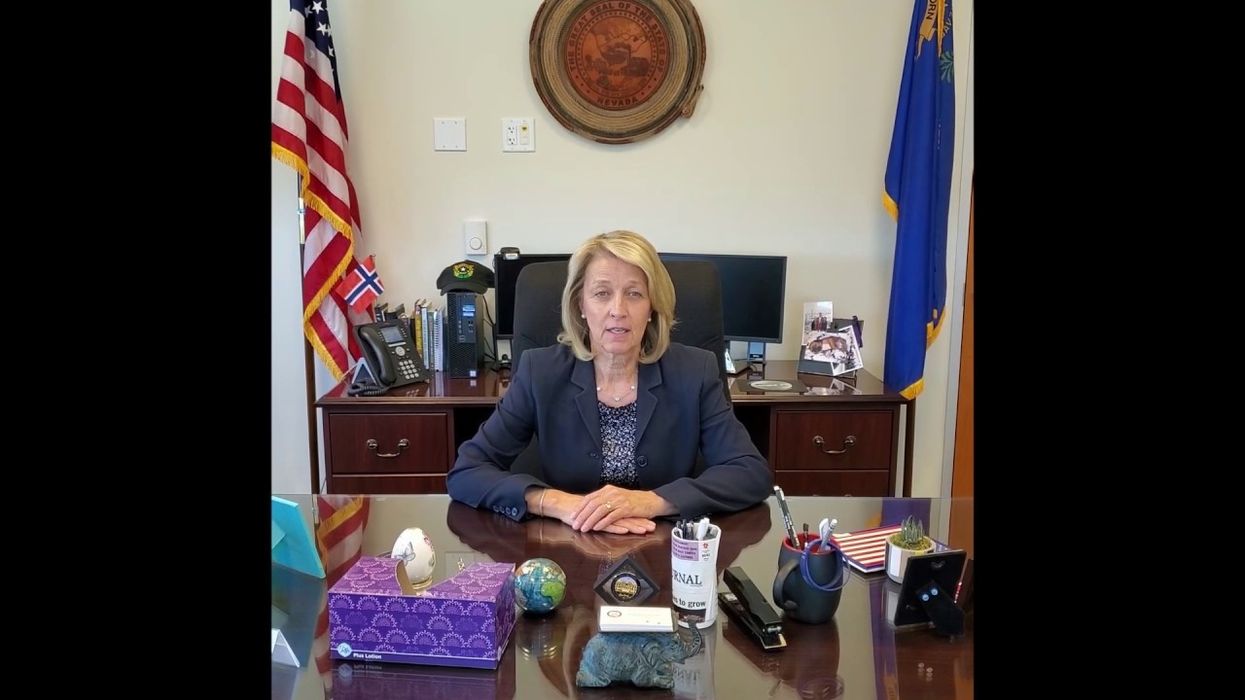Nevada allows any voter to vote absentee by mail. Like in many other states adapting to carrying out elections amidst a global pandemic, Nevada Secretary of State Barbara Cegavske declared the upcoming primary would be carried out by mail due to the coronavirus. A federal judge recently ruled that conducting the primary election by mail ballot was lawful in rejecting an injunction to block Nevada's primary.
President Trump's tweet suggests voting-by-mail is fraudulent, despite a lack of evidence to support the claim. In a press release responding to Trump, Cegavske, a Republican, said Nevadans "have been voting by mail with no evidence of election fraud" for over a century, including members of the military, citizens residing outside the state, voters in designated mailing precincts, and voters requesting absentee ballots. Cegavske said all 17 counties have established processes and procedures in place for safe and secure mail-in voting. Research shows voter fraud with mail-in ballots is rare and even with the increase in mail voting over time, fraud rates remain "infinitesimally small," according to the Brennan Center.
The tweet also seems to suggest that Trump has the legal authority to "hold up funds" to the state of Nevada for carrying out its upcoming primary by allowing all voters to vote by mail. No such legal authority exists.
The statements made here are alike to those in another tweet Trump wrote, which levied substantially similar claims about the state of Michigan. Trump falsely accused Michigan Secretary of State Jocelyn Benson of illegally mailing out absentee ballots to 7.7 million Michiganders for the state's primary and general elections.



















